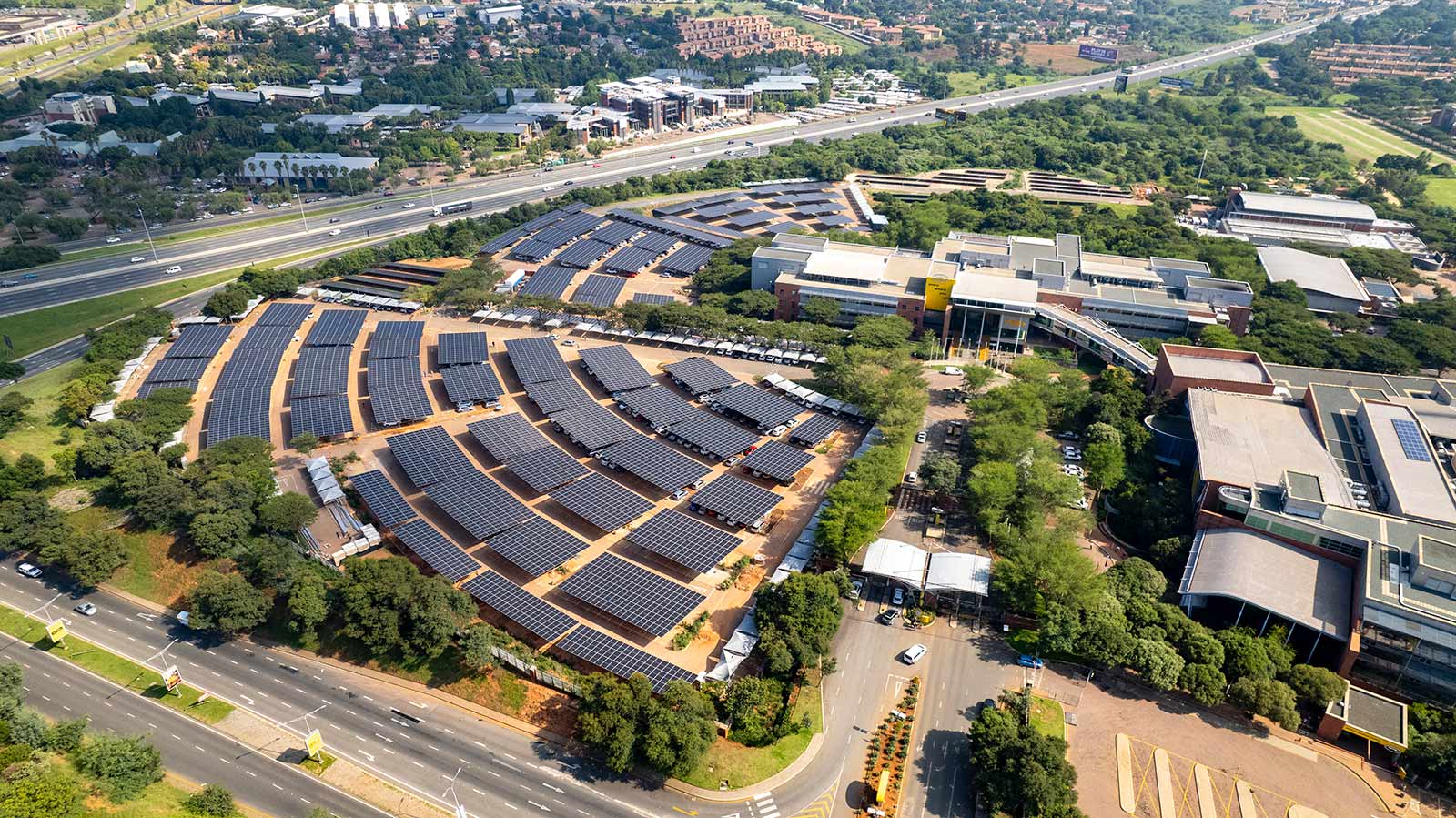
- Home
- About Us
- Sustainability
- Investors
- News
- People & Culture
-
Regions

Project Zero forms a key part of MTN South Africa’s strategy to meet its Science Based Targets initiative (SBTi) commitments and progress toward the Group’s Net Zero philosophy. In 2024, the programme focused on reducing reliance on high-carbon energy through solar integration, enhanced energy efficiency in base station site generators and wheeling arrangements with independent power producer (IPP)s.
A notable initiative within this framework was the commissioning of the 14th Avenue Solar Park, a 5MW solar photovoltaic (PV) system with 6MWh battery storage, representing a practical application of the Substitute pillar within MTN’s Net Zero model.
South Africa faces high fossil fuel energy dependency, rising electricity costs and loadshedding due to major grid instability. The reliance on traditional power sources, such as coal and diesel generators, directly impact MTN South Africa’s ability to reduce emissions and manage energy costs.
To address these challenges, MTN South Africa accelerated its transition to cleaner, more stable energy alternatives, ensuring a more sustainable, cost-effective and resilient energy framework. The results reflect this shift. In 2024, MTN South Africa achieved a 64.2% reduction in Scope 1 and 2 emissions against a target of 12.5%. The actual emissions reduction achieved was 353 329tCO2e. This case study illustrates the successful application of the Substitute pillar of MTN’s Net Zer philosophy.
The system cut 5 937tCO2e in 2024, with full-year savings expected to reach 8 037tCO2e.
Achieved an opex reduction of R12.61 million in 2024. Going forward, it will be R12.6 million per annum and escalate as per NERSA’s cost of energy.
Shielded MTN from rising grid electricity prices, which have increased by an average 13.5% year-on-year (2020 – 2024).
Project Zero in South Africa demonstrates how large-scale solar integration, hybrid power solutions and innovative energy models can contribute meaningfully to emission reduction, cost control, and energy resilience. Looking ahead, MTN South Africa will continue to scale renewable energy adoption, optimise wheeling strategies and explore further electrification opportunities to support its long-term sustainability targets.